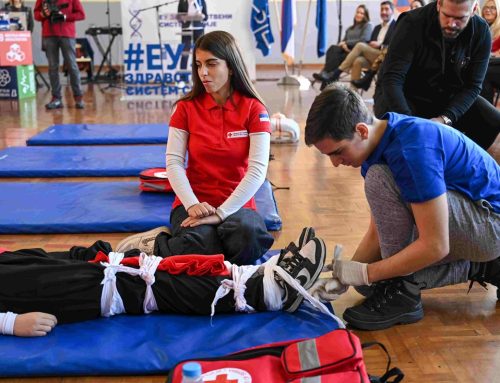The European Commission announced today the results of the 2023 Erasmus+ call for the European Universities initiative, which supports alliances of higher education institutions. These European university alliances bring together a new generation of Europeans who are able to study and work in different European countries, in different languages, and in different sectors and academic disciplines. Thanks to these alliances, students can obtain a degree by combining studies in several European countries, which contributes to the international competitiveness of higher education institutions in Europe.
With today’s results, adding seven new alliances of European universities, the total of 50 alliances now includes more than 430 higher education institutions in 35 countries. This includes all EU member states, as well as Iceland, Norway, Albania, Bosnia and Herzegovina, Montenegro, North Macedonia, Serbia and Turkey.
Two universities from Serbia are part of the alliance supported by this invitation. The University of Belgrade became a member of the Circle U. European University alliance, together with Aarhus University from Denmark, Circle.U Aisble University and the Catholic University of Louvain from Belgium, the University of Pisa from Italy, the University of Vienna from Austria, the University of Paris Cite from France , as well as the University of Oslo from Norway. The University of Arts from Belgrade became a member of the IN.TUNE alliance – innovative universities in music and art in Europe.
Students of these institutions can benefit from a unique transnational and innovative educational offer, enabling them to acquire basic skills and competencies for the future. Furthermore, by partnering with nearly 1,700 affiliated partners among non-governmental organizations, businesses, local and regional authorities, alliances of 50 European universities bring broad-based innovation to European regions.
With a record total budget of €402.2 million from the Erasmus+ program for this call, each alliance receives a budget of up to €14.4 million over four years.
The call for 2023 opened the possibility for higher education institutions from the countries of the Western Balkans, which are not connected to the Erasmus+ program, to participate as full partners in the call. As a result, higher education institutions from Albania, Bosnia and Herzegovina and Montenegro joined the initiative, in addition to those from North Macedonia and Serbia.
As last year, alliances can include higher education institutions from Bologna Process countries as associate partners. According to the call for 2023, close to 30 higher education institutions from Ukraine also joined the alliances.
The European Union, as the largest donor in Serbia, supports the modernization of the education system and harmonization with the standards and practices of EU countries. Since 2003, the EU has donated more than 100 million euros for the reform of the education sector – for the improvement of preschool education and education, the reform of secondary vocational education and adult education, renovation and equipping of schools and colleges, as well as support for inclusive education.




